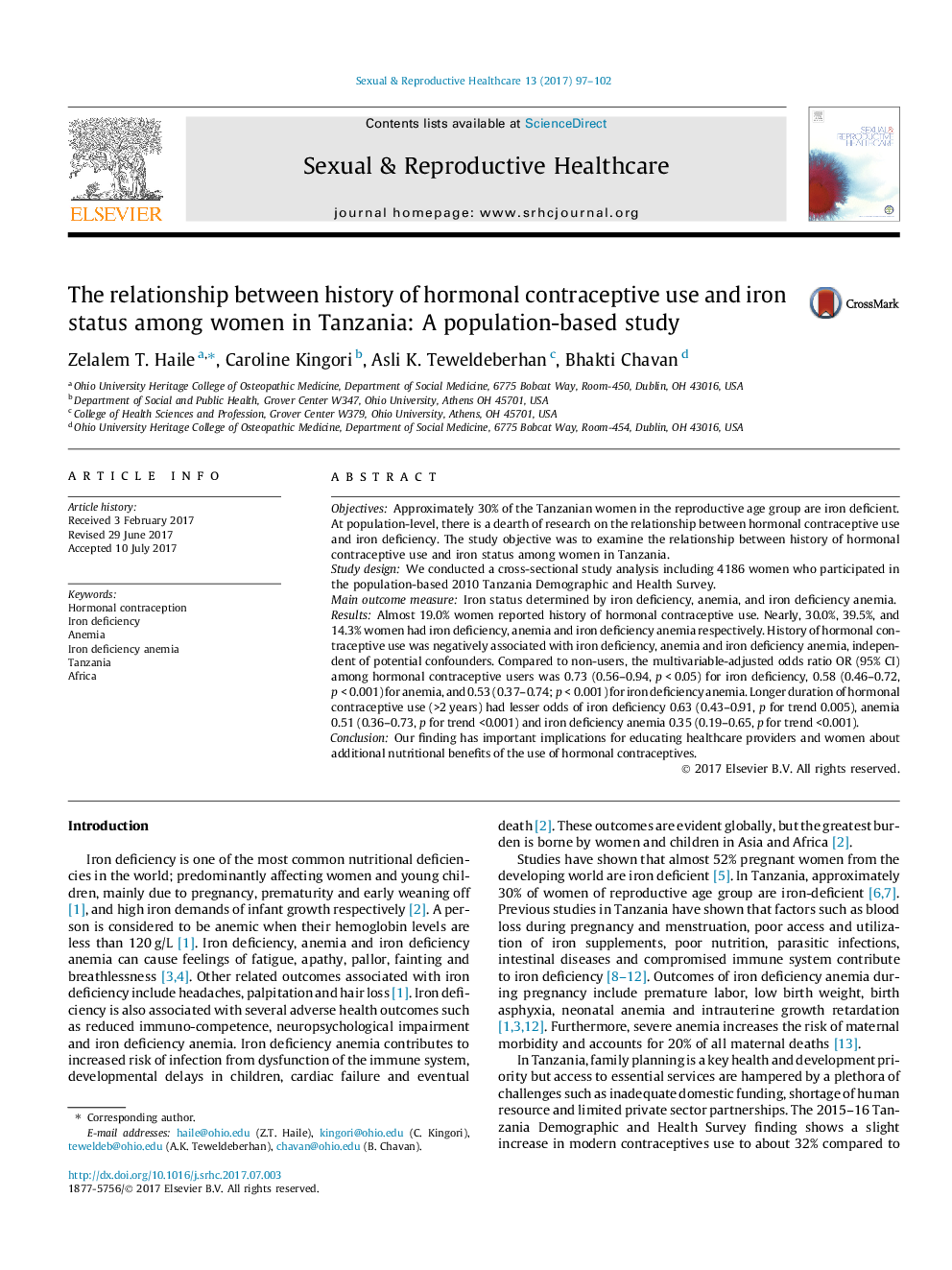| کد مقاله | کد نشریه | سال انتشار | مقاله انگلیسی | نسخه تمام متن |
|---|---|---|---|---|
| 5565956 | 1563305 | 2017 | 6 صفحه PDF | دانلود رایگان |
- Hormonal contraceptive users are less likely to experience iron deficiency, anemia, and iron deficiency anemia compared to non-users.
- Compared to non-user's longer duration of hormonal contraceptive use is associated with lower odds of iron deficiency, anemia, and iron deficiency anemia.
- In addition to its effectiveness for family planning, hormonal contraceptives may offer potential nutritional benefit.
ObjectivesApproximately 30% of the Tanzanian women in the reproductive age group are iron deficient. At population-level, there is a dearth of research on the relationship between hormonal contraceptive use and iron deficiency. The study objective was to examine the relationship between history of hormonal contraceptive use and iron status among women in Tanzania.Study designWe conducted a cross-sectional study analysis including 4186 women who participated in the population-based 2010 Tanzania Demographic and Health Survey.Main outcome measureIron status determined by iron deficiency, anemia, and iron deficiency anemia.ResultsAlmost 19.0% women reported history of hormonal contraceptive use. Nearly, 30.0%, 39.5%, and 14.3% women had iron deficiency, anemia and iron deficiency anemia respectively. History of hormonal contraceptive use was negatively associated with iron deficiency, anemia and iron deficiency anemia, independent of potential confounders. Compared to non-users, the multivariable-adjusted odds ratio OR (95% CI) among hormonal contraceptive users was 0.73 (0.56-0.94, p < 0.05) for iron deficiency, 0.58 (0.46-0.72, p < 0.001) for anemia, and 0.53 (0.37-0.74; p < 0.001) for iron deficiency anemia. Longer duration of hormonal contraceptive use (>2 years) had lesser odds of iron deficiency 0.63 (0.43-0.91, p for trend 0.005), anemia 0.51 (0.36-0.73, p for trend <0.001) and iron deficiency anemia 0.35 (0.19-0.65, p for trend <0.001).ConclusionOur finding has important implications for educating healthcare providers and women about additional nutritional benefits of the use of hormonal contraceptives.
Journal: Sexual & Reproductive Healthcare - Volume 13, October 2017, Pages 97-102
